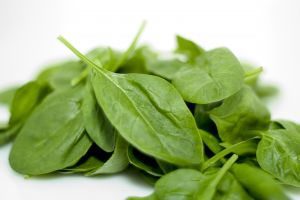Hydro Tasmania has unveiled its latest renewables project on King Island – a $46 million prototype off-grid power plant that combines solar panels, wind turbines and biodiesel, as well as energy storage technology, with the aim of reducing the Bass Strait island’s reliance on diesel and cutting the Island’s energy costs by $4.5 million a year. Hydro Tasmania – which is licensed to provide electricity generation, distribution and retailing services on both King and Flinders Islands – hopes that, by the end of 2013, the plant will be providing 65 per cent of King Island’s energy needs from renewable sources; 100 per cent on windy days.
After testing is complete, the plan is to export the The King Island Renewable Energy Integration Project to other offshore and remote areas, targeting markets like Indonesia, the Pacific islands and Papua New Guinea. The Australian reports that Hydro Tasmania also plans to sell the hybrid off-grid power plants to mining and tourism developments in remote Australia, again as an alternative to diesel. Project manager Simon Gamble told the paper that the plant – which uses a variety of technologies to achieve “baseload” reliability – was commercially viable because the alternative, diesel, was “very, very expensive and exposed to volatile oil price movements and geopolitical instabilities.”
Gamble also told The Australian that “the big leap forward” for Hydro Tasmania’s technology had been the control system it developed to better integrate renewable and non-renewable energies. The King Island plant uses “enablers” – a resistor, a flywheel and the biggest battery in the southern hemisphere – to improve the reliability and productivity of the wind and solar resources.
Record profit for CO2 Group
ASX-listed carbon solutions company CO2 Group has announced a record profit for the September financial year 2012, with earnings before interest and tax (EBIT) of $7.05 million (up from $2.2 million in 2011) and net profit of $4.9 million, up from $1.5 million in 2011. CO2 Group CEO Andrew Grant said the company – Australia’s largest developer of reforestation-based carbon projects – had profited from a well conceived strategy, from extending its products and services portfolio, and from international expansion. He said CO2 Group had continued to reinvest revenues in the best employees and R&D.
Grant also gave a nod to the Australian government’s introduction of carbon pricing; the creation of CO2 Asia and expansion of CO2 New Zealand; a $3.8 million research grant from the federal government’s Biodiversity Fund; and a commission by the Tasmanian government to quantify carbon stored in forests. The company’s trading entity, Credit Carbon Banc, was also a strong performer, generating revenues of $38 million. Grant said CO2 Group had reinforced its position as Australia’s largest provider of carbon sink projects, and he expected more opportunities to arise once the market viewed current carbon legislation as long-term – adding that he anticipated the 2012/2013 year would “be a challenging one for CO2 Group.”
Another subsidy win in Germany for Ceramic
ASX-listed Ceramic Fuel Cells has welcomed the launch of another German subsidy scheme for micro combined heat and power products, this time in the state of North-Rhine Westphalia. Under the new scheme the state’s government will pay a capital subsidy to commercial customers and Energy Service Companies who install mCHP products of less than 50 kilowatts – like Ceramic Fuel Cells’ highly popular BlueGen units – as well as integrated mCHP products. Local utilities are also eligible for funding under certain conditions. Ceramic says its BlueGen and integrated mCHP products are a good chance be classed as “highly innovative cogeneration systems,” and so therefore should be eligible for a subsidy of 45 percent. This subsidy would be increased 10 to 20 per cent for small and medium sized businesses.
In other news…
BP has pulled out of plans to build a $300 million biofuel production plant in the US. The Florida plant would have been capable of making “second generation” biofuel from hard to break down crops. BusinessGreen reports that the company announced in a statement last week that it would not be proceeding with the cellulosic ethanol plant, which was expected to be capable of producing 36 million gallons (136 million litres) of the fuel each year, and would instead refocus its US biofuels strategy on R&D and on licensing its technology.
Undaunted by the withdrawal last week of Siemens, the Moroccan government signed a new MoU with the Desertec Foundation, strengthening plans to build a series of solar farms in the North African country that would be capable of transmitting power to Europe. BusinessGreen reports that the Moroccan Agency for the Development of Renewable Energy and Energy Efficiency (ADEREE) signed the new alliance with the German-based Desertec Foundation on Thursday last week, confirming the two bodies would work together to share technical expertise and develop an effective policy framework for the ambitious project.







